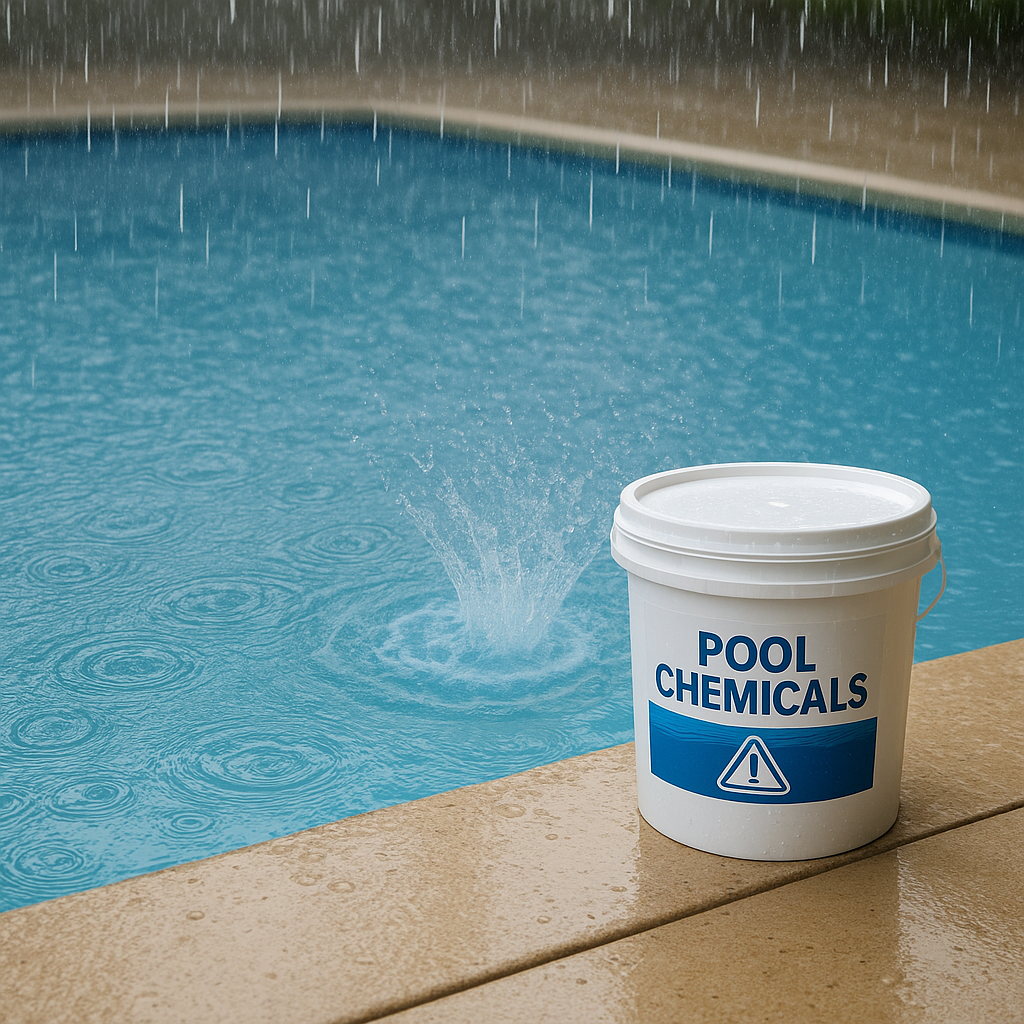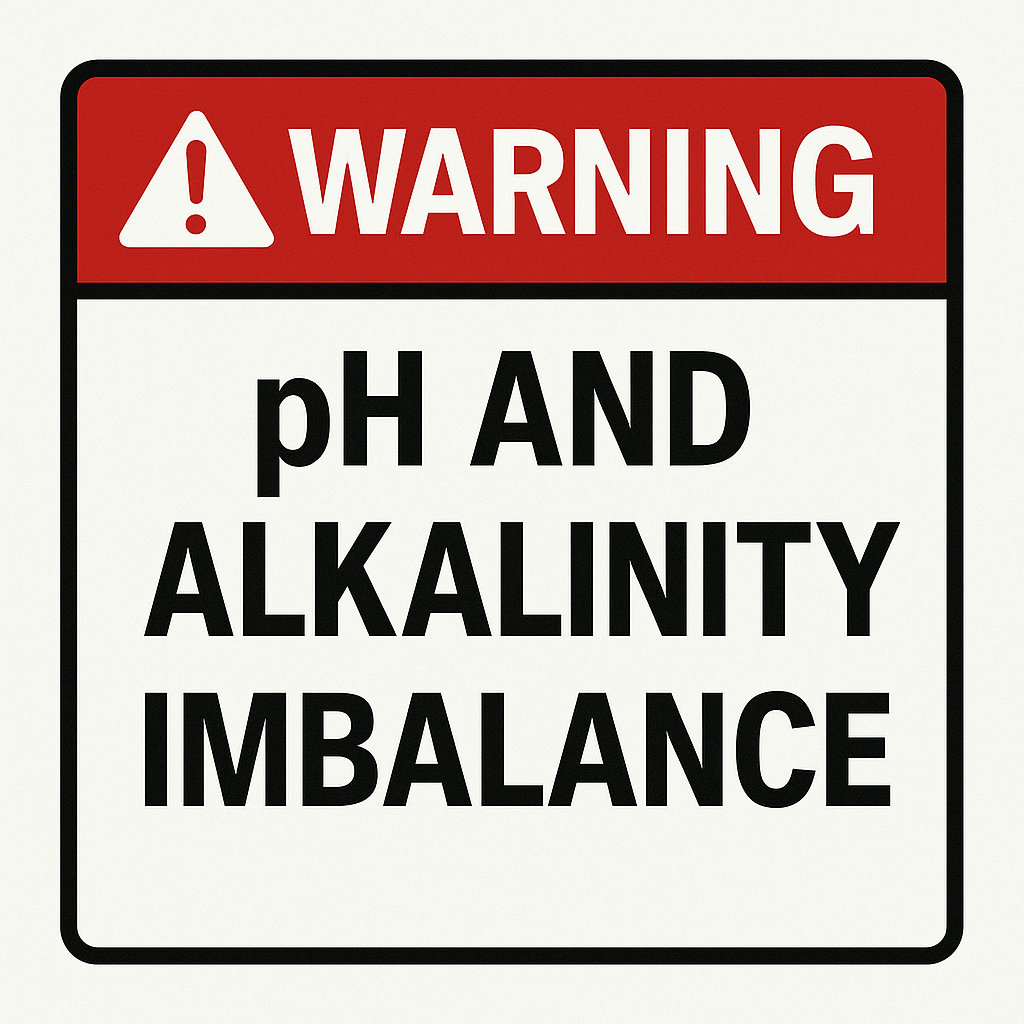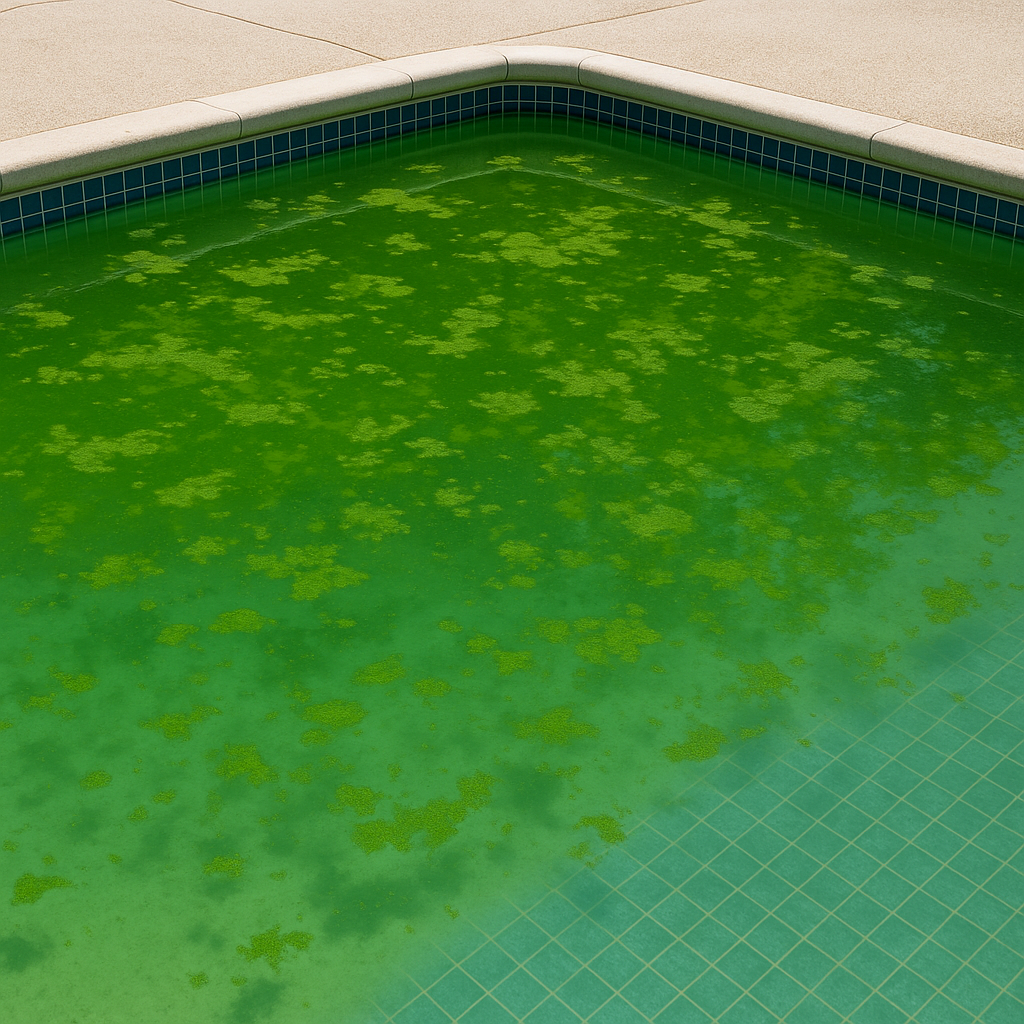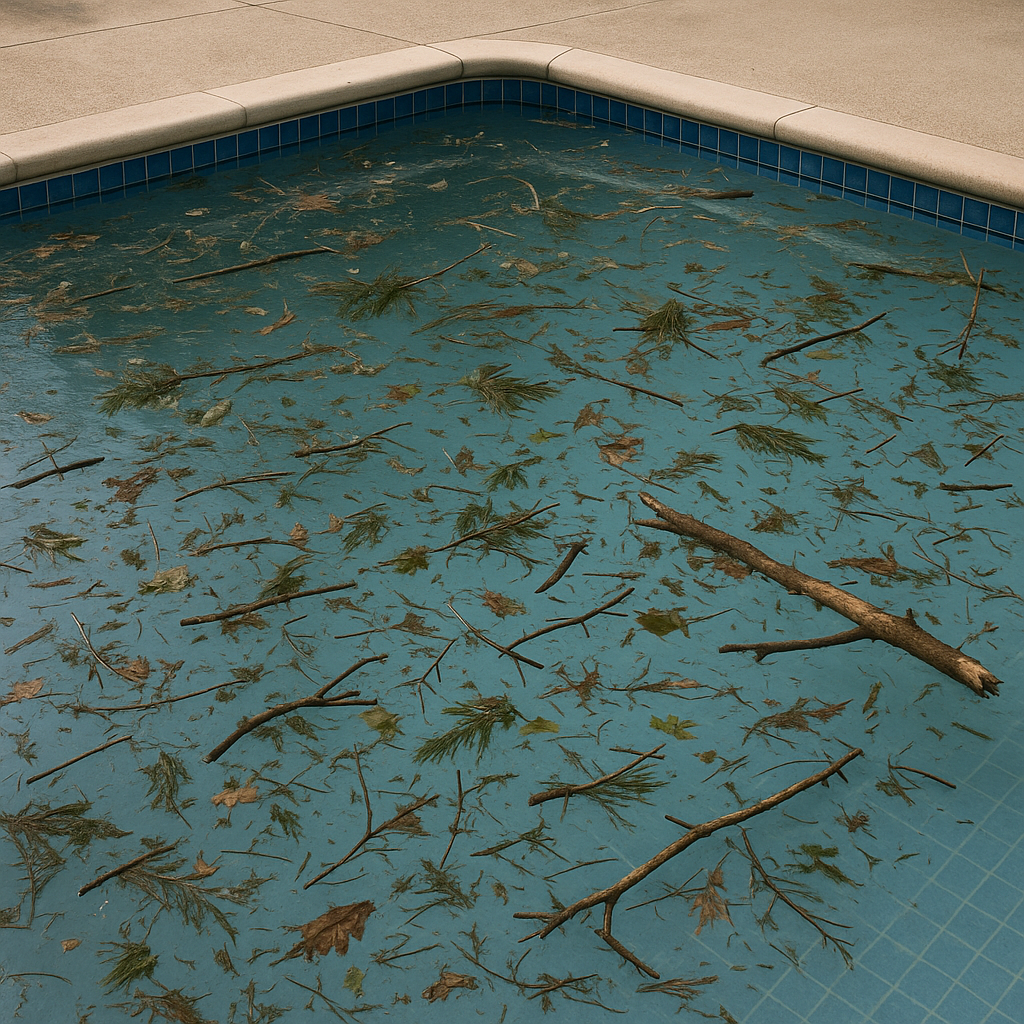Rain can be a welcome relief during hot days, but for pool owners, it introduces challenges that can affect water quality, safety, and equipment longevity. Understanding these impacts and knowing how to respond is crucial for maintaining a pristine pool.
1. Rainwater Dilutes Pool Chemicals

Rainwater, being relatively pure, lacks the chemical balance of pool water. When it enters the pool, it dilutes essential chemicals like chlorine, reducing their effectiveness. This dilution can compromise the pool’s ability to sanitize, making it more susceptible to contaminants.
Action: After significant rainfall, test your pool’s chemical levels and adjust accordingly to maintain optimal sanitation.
2. pH and Alkalinity Imbalance

Rainwater is typically acidic, with a pH around 5.0. Introducing this into your pool can lower the overall pH and alkalinity, leading to corrosive water conditions. This imbalance can irritate swimmers’ skin and eyes and damage pool surfaces and equipment.
Action: Regularly monitor and adjust pH and alkalinity levels, especially after heavy rains, to ensure they remain within the recommended ranges.
3. Algae Growth Promotion

Rain can introduce organic materials and nutrients into the pool, creating an ideal environment for algae growth. Combined with diluted chlorine levels, this can lead to rapid algae blooms, turning your pool water green and cloudy.
Action: Prevent algae by maintaining proper chlorine levels and using algaecides as needed. If algae appear, shock the pool and clean all surfaces thoroughly.
4. Debris Accumulation

Storms often bring leaves, dirt, and other debris into your pool, which can clog filters and promote bacterial growth. This debris not only affects water clarity but can also stain pool surfaces if not promptly removed.
Action: After a storm, remove all debris from the pool, clean skimmer baskets, and backwash or clean filters to ensure proper circulation and filtration.
5. Pool Overflow and Equipment Strain

Excessive rainfall can cause your pool to overflow, leading to water loss and potential damage to surrounding areas. Overflow can also strain the pool’s circulation system and dilute chemical concentrations further.
Action: Monitor water levels during heavy rains. If the pool is at risk of overflowing, safely drain excess water to maintain appropriate levels.
🛠️ Post-Rain Pool Maintenance Checklist
- Test Water Chemistry: Check pH, chlorine, and alkalinity levels.
- Adjust Chemicals: Rebalance as necessary to restore optimal conditions.
- Remove Debris: Skim the surface and clean out skimmer baskets.
- Clean Filters: Backwash or clean filters to ensure efficient operation.
- Shock the Pool: If necessary, perform a shock treatment to eliminate contaminants.
By understanding and addressing the effects of rain on your pool, you can ensure it remains a safe and enjoyable place for swimming, regardless of the weather.
#pool #pools #poolmaintenance #poolrain #pooltips #howto #tips #poolservice #dallas #frisco #prosper #celina


